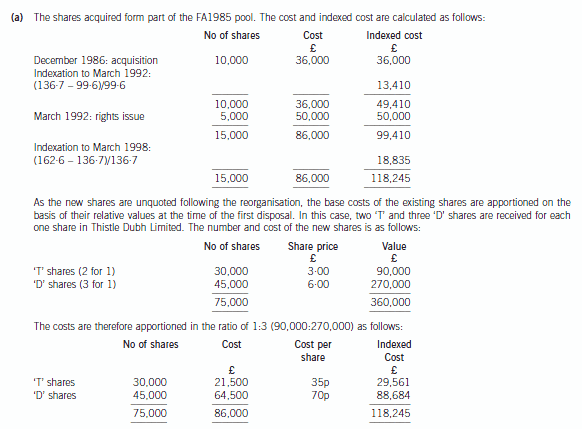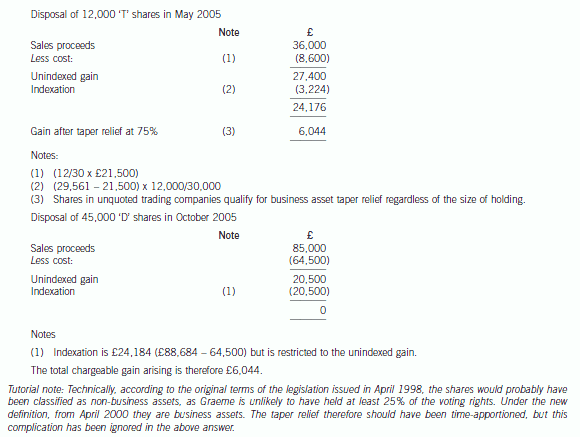在上海市,ACCA考试通过了你不这样做你还是不能拿到证书
发布时间:2020-01-08
近些年,随着各式各样的考试风靡全国以来,ACCA证书也是从众多资格证书里脱颖而出,逐渐映入大众的眼帘。了解它的人称之为“金饭碗”,那么有些通过所以ACCA考试全部科目的小伙伴就来咨询51题库考试学习网,成绩通过之后,证书是怎么样领取呢?是等待官方邮寄过来?还是自己去申请领证呢?这些疑问51题库考试学习网会为大家逐一解决,请大家耐心地往下看哟~
首先要恭喜你成为了ACCA准会员了,当你通过14门ACCA考试的那一科开始,你就成为准会员了。但是需要注意的是从准会员并不是会员,想从准会员到ACCA会员,这些事情你必须要做:
1.ACCA每年2月份和8月份会分别公布12月份和6月份的考试成绩。每一个通过ACCA全部考试的学员随后会收到ACCA英国总部邮寄的《ACCA会员或准会员申请手册》(一般收到时间是3月初和9月初)。每人必须根据自身的情况,如是否满足ACCA相关工作经验要求,向ACCA英国申请成为会员或准会员。
2.ACCA总部收到学员申请后,不论是申请会员和准会员,都会给学员颁发ACCA准会员证书,以确认学员成功通过所有考试。
3.对于申请会员的学员,要求如实填写会员申请手册,并总结平时记录的STR(Student Training Record)中的主要工作经历和取得的工作能力,填入申请手册(在递交会员申请表时,可以暂时不提交STR,但是,一旦ACCA英国总部通知需要提交STR,以便了解更详细的信息完成评估,学员需要再补交STR)。ACCA英国总部会对学员所填的工作记录进行评估和并与其监督人联系进行核查,确认无误后,则批准其成为ACCA会员,一般这个过程需要两个月的时间。
4.如果学员在规定的时间内没有收到以上申请手册,可以直接登陆ACCA全球官网下载。
5.对于暂时未满足工作经验的准会员,可以在条件满足的任何时间向ACCA递交ACCA会员申请表。
完成了以上所有步骤之后,你就算是成功申请ACCA会员了,只需要等待官方发送证书即可。
都说,阳光总在风雨后,当你拿到通过自己努力获得的证书时,那份喜悦肯定是独一无二的,那一刻你也明白了自己的努力是值得的;所以,为了那一天的到来,各位ACCAer们加油复习,早日完成目标~
下面小编为大家准备了 ACCA考试 的相关考题,供大家学习参考。
(iii) The effect of the restructuring on the group’s ability to recover directly and non-directly attributable input
tax. (6 marks)
You are required to prepare calculations in respect of part (ii) only of this part of this question.
Note: – You should assume that the corporation tax rates and allowances for the financial year 2006 apply
throughout this question.
(iii) The effect of the restructuring on the group’s ability to recover its input tax
Prior to the restructuring
Rapier Ltd and Switch Ltd make wholly standard rated supplies and are in a position to recover all of their input tax
other than that which is specifically blocked. Dirk Ltd and Flick Ltd are unable to register for VAT as they do not make
taxable supplies. Accordingly, they cannot recover any of their input tax.
Following the restructuring
Rapier Ltd will be carrying on four separate trades, two of which involve the making of exempt supplies such that it will
be a partially exempt trader. Its recoverable input tax will be calculated as follows.
– Input tax in respect of inputs wholly attributable to taxable supplies is recoverable.
– Input tax in respect of inputs wholly attributable to exempt supplies cannot be recovered (subject to the de minimis
limits below).
– A proportion of the company’s residual input tax, i.e. input tax in respect of inputs which cannot be directly
attributed to particular supplies, is recoverable. The proportion is taxable supplies (VAT exclusive) divided by total
supplies (VAT exclusive). This proportion is rounded up to the nearest whole percentage where total residual input
tax is no more than £400,000 per quarter.
The balance of the residual input tax cannot be recovered (subject to the de minimis limits below).
– If the de minimis limits are satisfied, Rapier Ltd will be able to recover all of its input tax (other than that which is
specifically blocked) including that which relates to exempt supplies. The de minimis limits are satisfied where the
irrecoverable input tax:
– is less than or equal to £625 per month on average; and
– is less than or equal to 50% of total input tax.
The impact of the restructuring on the group’s ability to recover its input tax will depend on the level of supplies made
by the different businesses and the amounts of input tax involved. The restructuring could result in the group being able
to recover all of its input tax (if the de minimis limits are satisfied). Alternatively the amount of irrecoverable input tax
may be more or less than the amounts which cannot be recovered by Dirk Ltd and Flick Ltd under the existing group
structure.

(ii) Comment briefly on the use of its own tree plantations as a source of raw materials by Our Timbers Ltd.
(3 marks)
(ii) The use of its own tree plantations as a source of raw materials not only ensures available supplies of timber but may
also demonstrate that the directors of Our Timbers Ltd are mindful of the need for careful planning in the consumption
of natural resources. This concern with the need to protect the environment will enhance the reputation of Our Timbers
Ltd as an environmentally-conscious organisation which in turn may translate into a source of competitive advantage
since contemporary thought is very much focused on the environmental responsibilities of organisations with particular
regard to the use of natural resources such as timber.
2 Graeme, aged 57, is married to Catherine, aged 58. They work as medical consultants, and both are higher rate
taxpayers. Barry, their son, is aged 32. Graeme, Catherine and Barry are all UK resident, ordinarily resident and
domiciled. Graeme has come to you for some tax advice.
Graeme has invested in shares for some time, in particular shares in Thistle Dubh Limited. He informs you of the
following transactions in Thistle Dubh Limited shares:
(i) In December 1986, on the death of his grandmother, he inherited 10,000 £1 ordinary shares in Thistle Dubh
Limited, an unquoted UK trading company providing food supplies for sporting events. The probate value of the
shares was 360p per share.
(ii) In March 1992, he took up a rights issue, buying one share for every two held. The price paid for the rights
shares was £10 per share.
(iii) In October 1999, the company underwent a reorganisation, and the ordinary shares were split into two new
classes of ordinary share – ‘T’ shares and ‘D’ shares, each with differing rights. Graeme received two ‘T’ and three
‘D’ shares for each original Thistle Dubh Limited share held. The market values for the ‘T’ shares and the ‘D’
shares on the date of reorganisation were 135p and 405p per share respectively.
(iv) On 1 May 2005, Graeme sold 12,000 ‘T’ shares. The market values for the ‘T’ shares and the ‘D’ shares on that
day were 300p and 600p per share respectively.
(v) In October 2005, Graeme sold all of his ‘D’ shares for £85,000.
(vi) The current market value of ‘T’ shares is 384p per share. The shares remain unquoted.
Graeme and Catherine have owned a holiday cottage in a remote part of the UK for many years. In recent years, they
have used the property infrequently, as they have taken their holidays abroad and the cottage has been let out as
furnished holiday accommodation.
Graeme and Catherine are now considering selling the UK country cottage and purchasing a holiday villa abroad.
Initially they plan to let this villa out on a furnished basis, but following their anticipated retirement, would expect to
occupy the property for a significant part of the year themselves, possibly moving to live in the villa permanently.
Required:
(a) Calculate the total chargeable gains arising on Graeme’s disposals of ‘T’ and ‘D’ ordinary shares in May and
October 2005 respectively. (7 marks)


声明:本文内容由互联网用户自发贡献自行上传,本网站不拥有所有权,未作人工编辑处理,也不承担相关法律责任。如果您发现有涉嫌版权的内容,欢迎发送邮件至:contact@51tk.com 进行举报,并提供相关证据,工作人员会在5个工作日内联系你,一经查实,本站将立刻删除涉嫌侵权内容。
- 2020-01-08
- 2019-07-20
- 2020-01-08
- 2020-01-08
- 2020-01-08
- 2020-01-08
- 2020-01-08
- 2020-03-08
- 2020-01-08
- 2019-07-20
- 2020-02-29
- 2020-01-08
- 2019-07-20
- 2019-07-20
- 2020-02-29
- 2020-01-08
- 2021-08-12
- 2020-09-04
- 2019-07-20
- 2020-01-08
- 2020-01-08
- 2020-02-29
- 2020-01-08
- 2020-02-29
- 2020-01-08
- 2019-07-20
- 2020-03-04
- 2020-01-08
- 2019-07-20
- 2020-01-08